
In the realm of opera, Abela has guest conducted opera productions with various Michigan-based opera companies including Detroit's OperaMODO, and serves as music director for Vancouver-based opera company, Re:Naissance. Prior to her time in Detroit, Abela lived in Connecticut where she served on faculty at Wesleyan University, Greater Hartford Academy of the Arts, The Westover School and Notre Dame High School in West Haven. In 2012, Abela was featured conducting on NBC's Today Show and was a semi-finalist in Season 8 of America's Got Talent as director of Connecticut-based 3 Penny Chorus and Orchestra. The ensemble later recorded for the soundtrack of Hollywood film Walk of Shame starring Elizabeth Banks.
Abela received her doctorate in conducting from the University of Michigan with Jerry Blackstone and Eugene Rogers, holds a master’s degree in choral conducting from Yale University with Marguerite Brooks, Jeffrey Douma, and Simon Carrington, and a bachelor of arts from Smith College. Abela sings professionally in ensembles across the United States and Canada such as Yale Choral Artists, sounding light, Etherea Vocal Ensemble, Arkora, and Audivi. Originally from the San Francisco bay area, she sang with the San Francisco Girls Chorus for many years.
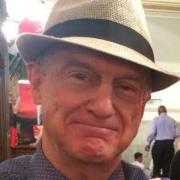
At Amherst College, he directed fellow student Jim Steinman’s revolutionary rock musical The Dream Engine, (“makes Hair look like Hello Dolly”) and played the Historian, the dramatic and decrepit personification of history. Legendary producer Joseph Papp saw a performance and decided to bring the show to The New York Shakespeare Festival with the student cast and featuring Barry and Jim in the starring roles.
Dream Engine was work-shopped at the Public Theatre and was eventually produced at the Kennedy Center as Neverland, a through-a-glass-darkly version of Peter Pan. Barry directed and starred in this production, and not long after, Jim’s score became the world-wide best selling album: Meat Loaf/Bat Out Of Hell.
Other highlights of Barry’s career have been writing The Muppet Babies Magic Box, an arena show for the Muppets working closely with Jim Henson himself; directing Penn and Teller in their very first stage show “The Asparagus Valley Cultural Society;” and co-writing and directing Rhinegold, using Wagner’s libretto for Das Rheingold with an original score by Jim Steinman.
He also wrote the music and lyrics for Flannigan’s Dream, commissioned and produced by Boys Town, Omaha, Nebraska; and two ecological musicals: The Slick of ‘76 about an infamous Oil Spill in the Thousand Islands area of Upstate NY, and The Garbage Can-tata, about re-cycling which was produced the United Nations for Earth Day.
On Broadway, he directed the annual Theatre World Awards ceremony for over ten years, and received a MAC Award nomination for performing and writing his own cabaret show Hollywood Opera.
Most recently, he served as Jim Steinman’s Creative Consultant on the smash hit show “Bat Out Of Hell—The Musical” which performed on London’s West End, Toronto, The Manchester Opera House, and NY's City Center.
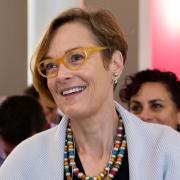
After graduating from Amherst, Kitty joined the Bloomingdales Executive Training Program. When she left in 1986, she was a Dress Buyer. She spent a year in the Development Office at the Whitney Museum of American Art. She then returned to the for-profit sector, joining the Ellen Tracy Company.
In 1989, Kitty and her husband Bill (Stanford '81, Columbia J.D. ‘86) moved to Paris, where Bill worked for an American law firm. They lived in Paris, and then in London, for five years and had two sons. It was while they were living in London that her eldest child, Alexander, was diagnosed as having autism, with a severe speech and language disorder.
Returning home to the United States in 1994, the Shirleys moved to Larchmont, New York, where they still live. Their daughter, Theodora, arrived in 1997. She arrived in Amherst in 2015 as a member of the class of 2019.
For over 20 years, Kitty focused on raising a family that faced challenges that are a bit different from most. During that time, she was an active participant in the school district's Special Education PTA and served as a Parent Member for the district committees that oversee the services offered to students with disabilities. In search of other challenges, Kitty trained as a pastry chef and also kept her hand in the retail world, working part-time on and off for local businesses. For several years now, Kitty has indulged her creative side as a jewelry artist, working with precious metals and flame-worked glass.
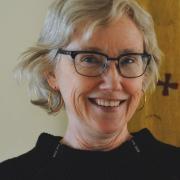
Catherine is an acknowledged expert on the poet Marina Tsvetaeva (1892-1941), whose epistolary romance with Boris Pasternak (1890-1960) was the subject of her book The Same Solitude (Cornell, 2006), which received a national award for the best book of literary/cultural criticism in the field. She co-edited with poet Honor Moore The Stray Dog Cabaret, an anthology of Paul Schmidt’s translations which frames a group portrait of the Russian modernists. The volume appeared in the Classics series published by New York Review of Books and was a finalist for the PEN Poetry in Translation Award in 2007. She also edited the anthology Relocations: Three Contemporary Russian Women Poets (Zephyr, 2013), which was featured in the “European Voices” series at Boston University.
Catherine also works as a translator of Russian poetry. Her translations of Marina Tsvetaeva’s poetry have been supported by residencies at MacDowell, the Banff International Centre for Literary Translation and Hawthornden, and they have appeared in The Nation, Seneca Review, The Common and elsewhere. She also translates the work of the contemporary poet Polina Barskova. Her translations of Barskova’s poetry have been published in The Massachusetts Review, Spillway and Cosmonaut’s Avenue, and she won a Joseph Brodsky/Stephen Spender prize in 2012 for one of these. She is currently translating Barskova’s first book of poetic prose, for which the poet won Russia’s top literary prize in 2015.
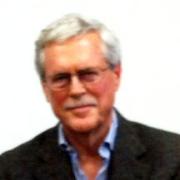
His published work includes book chapters on Shakespeare’s sonnets and on Richard Wilbur, the latter in a festschrift for Bill Pritchard that he co-edited with Chip Tucker, AC ’71. His poems have been published in The New Yorker, The Atlantic, Poetry, The Yale Review, The American Scholar, The New Republic and The New Criterion; most of his poems have been collected in Light Disguise (Copper Beach Press, 2003).
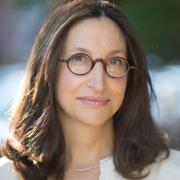
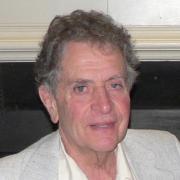
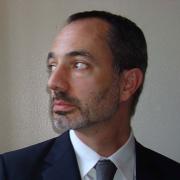
He received his Master in Library Science from the University of Texas at Austin where he spent two years as an intern at the Harry Ransom Center; he also holds an MA in English from the University of Virginia. In 2016, he was awarded the Reese Fellowship for American Bibliography and the History of the Book in the Americas by the Bibliographical Society of America for his work on the bibliography of Samson Occom, a member of the Mohegan tribe of Connecticut. He co-curated (with Carolyn Vega) the exhibition "I'm Nobody! Who Are You? The Life and Poetry of Emily Dickinson" at the Morgan Library & Museum in New York which ran from January through May 2017.
In the summer of 2018, Mike co-taught the course "A History of Native American Books & Indigenous Sovereignty" in Amherst for Rare Book School. He was elected to membership in the Grolier Club in 2005 and the American Antiquarian Society in 2016.
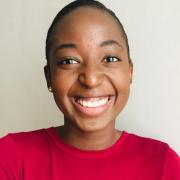
Outside of class, she served as the treasurer of the African and Caribbean Students Union, a member of ACSU dance company. Additionally, she was awarded the Architectural Studies Thesis prize for her publication 'Slum Currencies—An Economic Solution to a Housing Problem.'
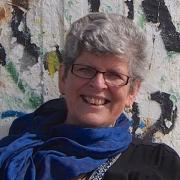
Pat did her doctoral work at Columbia University in NYC. After a post-doc at Stanford University, Pat came to Amherst College in 1983. Currently, her research is in biophysics, where she and her students use fluorescence spectroscopy to detect macromolecular dynamics. While her scientific publications appear in journals such as Biochemistry, Molecular Immunology and the Journal of Physical Chemistry, she has also contributed to the literature on curriculum development in chemistry and biochemistry. She has published a book, 21 full length articles, 27 Conference Proceedings, and numerous book reviews, most with her Amherst student collaborators. She is most proud of the 67 Honors Theses students she has had the privilege of supervising and the 76 non-thesis students who have learned how to do research in her lab.
Most recently, she has expanded her interest to food science, developing a course in Molecular Gastronomy and writing and teaching about Olive Oil Chemistry. Her belief that food science can be used to motivate the teaching of science was the basis of an opinion piece in a 2019 issue of “Trends in Chemistry” and the foundation of her book “The Chemical Story of Olive Oil: from Grove to Table” published in 2017 by the Royal Society of Chemistry.
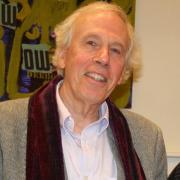
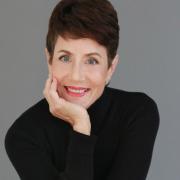
Early in life, Wendy set her sights on becoming a surgeon. Problem: blood made her faint, she’s terrible at math and chemistry and she couldn’t bear to dissect a dead frog for biology.
Despite this, and determined to stick with her interest in medicine, Wendy built a career in healthcare by combining her deep interest in medicine and science and her writing skills. This led her to become a successful medical writer and senior pharmaceutical advertising executive. In 2009, Wendy started a second career as a certified professional career and executive coach with a specialty in personal branding.
Amherst had a profound impact on Wendy, especially on her ability to think analytically and strategically. This became critical to her success in business. While all her professors were outstanding, several left lasting impressions. Her thesis advisor, Richard Cody, encouraged and guided her interest in a little-known Victorian author, giving her the confidence to explore the untraveled path.
Legendary professor G. Armour Craig showed her what Shakespeare had to offer and challenged her to develop and defend her viewpoint—a skill that became paramount in the male-dominated pharmaceutical industry.
Over the years Wendy has been dedicated to giving back as well as developing. She has served as a Regional Director of the Healthcare Businesswomen’s Association Group Mentoring Program and has been an officer and board member with the International Coach Federation, New York Chapter.
Today, Wendy and her husband, Dan, live in Westchester County, north of New York City. She is an Amherst class officer; an avid gardener, guitarist and drummer, and enjoys spending time with family, friends and neighbors.
Her motto: never stop learning.